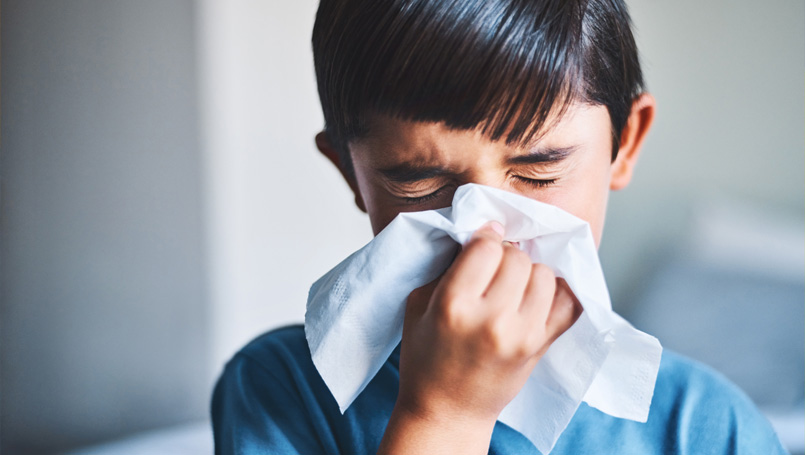
Flu season is here, and we asked Dr. Joel Fishbain, an infectious disease specialist at Beaumont, Grosse Pointe, what to know about influenza and how to avoid it.
What is the flu and how is it different from the common cold?
The disease known as “the flu” can be caused by a number of viruses. Influenza is most often the one we are talking about. Influenza is a respiratory tract illness caused by a group of viruses.
What symptoms should people look for?
While flu symptoms can mimic those of other viruses like the common cold, the differentiator is often high fever (above 100.5 F). Other symptoms typically include cough and body aches.
How common is it?
Influenza is very common, and the season usually runs from November to April.
Who is most susceptible to it, and why? Is it worse at any particular age?
Anyone can get influenza, but those who have not been vaccinated, or do not respond to vaccination, are at highest risk of being infected.

Those at highest risk for complications of influenza include:
- the very young
- the very old
- those with other lung and heart conditions
Beyond the usual advice of getting plenty of rest and staying hydrated, how is the flu treated?
There are a few medications that will actually treat this virus, and they should be started as soon as possible in order to get the maximum benefit. Doctors should counsel their patients about signs and symptoms and ensure vaccination.
How can people avoid the flu?
Get your vaccine, period. If you get sick, stay home. If you go out, cover your mouth when you cough.
Are there any misconceptions about the disease?
The most common myth is that the flu shot will give you the flu. This is not true. Some people may report having a mild reaction to the flu shot such as soreness, low-grade fever or muscle aches.
